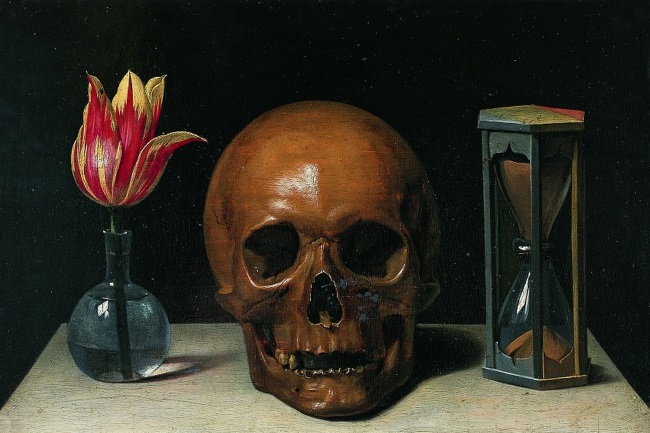Philosophy fan Gemma Rose contemplates death… in a good way.
Probably just a couple of inches from my desk, there is about a 50-metre drop. My desk sits parallel to a large window, which is practically the height of my room. There is no window sill, or any type of protective barrier, except the window is actually divided into two, so that only the top half can be opened. When I look out of the window, if I really imagine it, I feel like I’m suspended half way in the air. Yet, a little post-it note on the window divider keeps me grounded. In florescent pink letters, it reads: “I AM GOING TO DIE!!!”
Death: it’s a fate that doesn’t discriminate, differentiate or favour. We are all going to die. Yet, for most of the time, we don’t really like talking about it, let alone like facing it. Could it be that we try to keep ourselves young, or we prefer youth over old age, because the latter reminds us of our mortality?
Death and philosophy
What is it about death that makes us scared? Is it the being dead part, or the dying part? If it’s the being dead part then our fear is illogical says the ancient Greek philosopher, Epicurus. He sets out the ‘no subject of harm’ argument: death “is nothing to us”, because when we are alive, it has not come; and when we are dead, we cease to exist, as does our capacity to experience.
It’s most likely that what we fear is the pain or terror of dying. Yet, that is not the same as death. Another Epicurean argument is from the poet Lucretius: “Look back at the eternity that passed before we were born, and mark how utterly it counts to us as nothing. This is a mirror that Nature holds up to us, in which we may see the time that shall be after we are dead.” If we don’t find our inexistence before birth so bad, then why should we find our inexistence once we are dead so? Lucretius thinks they are exactly the same state.
Of course, as persuasive and logical as these arguments are, there is still the irrational part of us that finds them hard to swallow. What is the best way to deal with death? Oliver Burkeman, of The Antidote suggests a middle way. He says that we shouldn’t deprive of ourselves of thinking that death is bad, because it is. Death means the cessation of being with loved ones, smelling the roses, savouring a delicious meal; essentially, of life. Death also signifies the end of hopes, dreams and what could have been. This is where we get to the crux of the argument: by remembering that we must die, we must make the most of what we have today. By living a more meaningful life, we ought to live with as little regret as possible.







